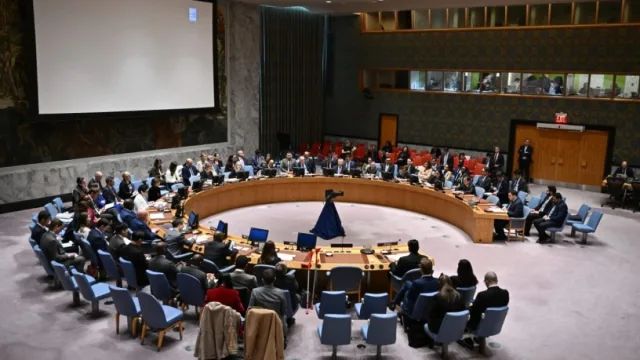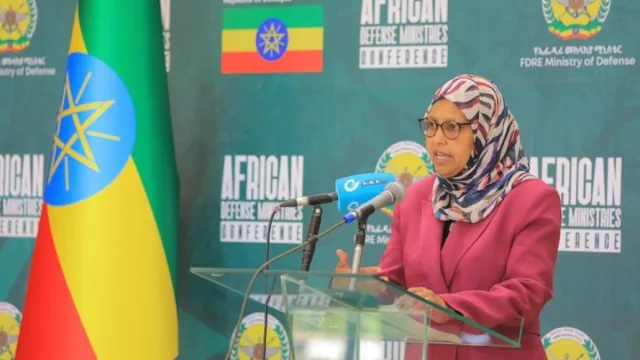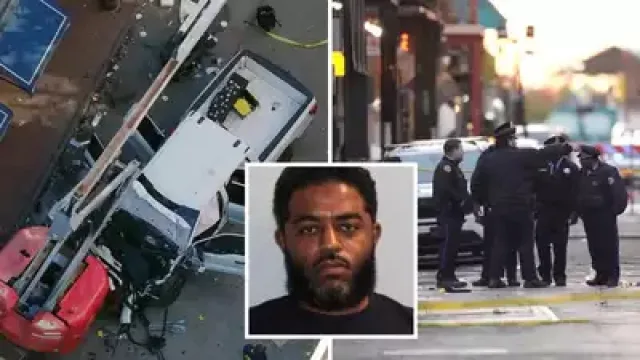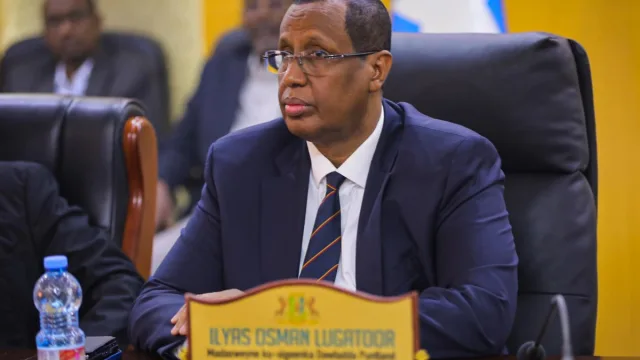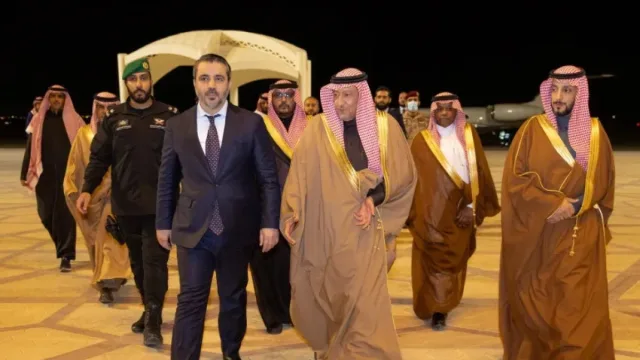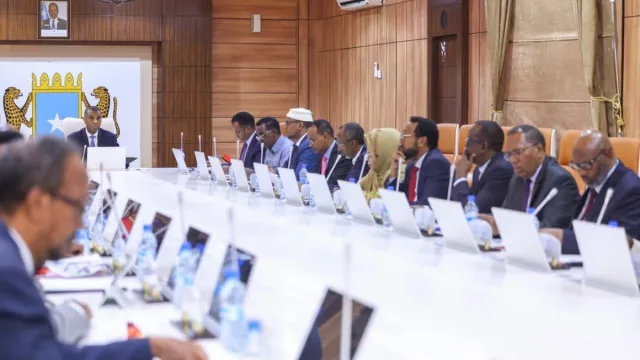Somalia has a new prime minister – the fourth since 2004 – and leaders in Mogadishu…
 Somalia has a new prime minister – the fourth since 2004 – and leaders in Mogadishu hope he will breathe new life into the Transitional Federal Government (TFG), but just what can Mohamed Abdullahi Mohamed (also known as Farmajo) do to quickly turn round a country that has been in turmoil for almost two decades?
Somalia has a new prime minister – the fourth since 2004 – and leaders in Mogadishu hope he will breathe new life into the Transitional Federal Government (TFG), but just what can Mohamed Abdullahi Mohamed (also known as Farmajo) do to quickly turn round a country that has been in turmoil for almost two decades?
Plucked from the US and finally sworn in on 1 November after a struggle to obtain parliamentary endorsement, Mohamed was nominated by President Sheikh Sharif Sheikh Ahmed to replace Omar Abdirashid Ali Sharmarke, who resigned on 21 September.
“I will soon form a government that will make security its priority … and [complete] the transitional tasks outlined in the charter,” he said. But observers and analysts say he faces huge immediate challenges:
Dealing with Al-Shabab
Mohamed begins his term as the TFG is fighting Islamist insurgents, mainly Al-Shabab, which controls much of south and central Somalia and most of the capital, Mogadishu.
“There must be a sufficient proportion of political actors within each of the factions [domestic and external] to give Mohamed and his team a chance and to cooperate with him,” said Michael Weinstein, an expert on Somalia and professor at Purdue University in the US.
A Somali political analyst, who requested anonymity, added: “The number-one challenge is how he can get the international community to unshackle him from the publicly undeclared parameters that he will be boxed into, such as that he cannot negotiate with Al-Shabab and Hisbul Islam.”
To work effectively, the new PM will need space and independence to negotiate with the opposition. “If he fails to convince the international community to give him a free hand, he will leave office with things getting worse and not better,” the analyst said. “The military solution is not working and will not work even if they bring in the 20,000 extra troops they are talking about.”
Divisions within the TFG
According to the Somali analyst: “The infighting between President Sharif and his erstwhile partner, Speaker Sharif Hassan, could make it impossible for the PM to function effectively and most of his time will be spent trying to ward off the speaker. The reason many Somalis have no faith in the TFG is largely due to endless infighting and lack of cohesion.”
Weinstein said: “Mohamed faces one overriding challenge in governance that he must surmount before he can tackle any other challenges – he must establish his credibility to govern and must overcome divisions within the TFG, its institutions and factions.
“The fact that Mohamed won a vote of confidence does not mean that the power struggle is over,” he said. “Without experience and a support base, he must show great political skill to get to a position in which he is able to face challenges at all. At best, he is a long shot.”
Insecurity and corruption
Roba Sharamo, head of the Africa Conflict Prevention Programme at the Institute for Security Studies (ISS) in Nairobi, said: “Security – insecurity – is a constant challenge for Somalia; without security, no transitional authority could succeed… the PM needs to deal with this incessant challenge and ensure that the TFG does not lose more ground to Al-Shabab and Hisbul Islam.”
The PM, he added, needed to reach out to Al-Shabab and Hisbul Islam and other armed Islamists opposed to the government.
A civil society source in Mogadishu said that while ending insecurity was key, tackling corruption, widespread within the TFG, was most important. “They don’t get much money but what the government [does get] is misappropriated by senior government officials,” the source said. “Mohamed must redirect resources to the right places, like paying the security forces their salaries.
“We have had cases where government troops were not being provided with basic necessities like food, water and ammunition. How is someone like that going to fight?” he asked. “Even the infighting and the lack of progress in the security sector have something to do with it. Senior officials are fighting over who will control the money. It really is that simple.”
Weinstein called for dialogue: “Mohamed has to keep donor powers at bay while connecting with factions within the armed opposition. This is very difficult to execute and might be impossible; but if he fails to do this, his administration will founder like others before him.
“He must position himself quickly as a unifying figure who can gain popular support that is sufficiently strong to overcome the present hyper-divisive drift of Somali politics, not only in southern and central regions, but increasingly in the north.”
Source: IRIN
